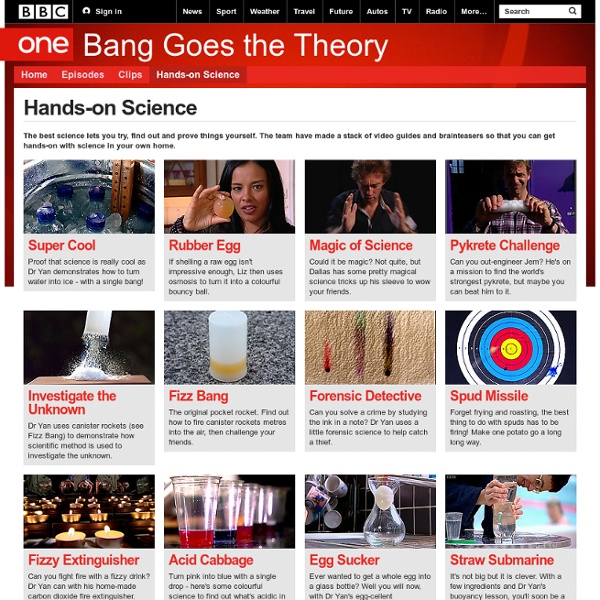



Ten Websites for Science Teachers We all know that the web is full of excellent web resources for science teachers and students. However, unless you live on the web, finding the best websites can become quite a challenge. This isn't a "Top Ten" list -- instead, it is a list of websites that I either use on a regular basis or just find interesting. From teaching resources for the nature of science and authentic field journals to wacky videos about numbers, I am sure that you will find something in the following list the works for you! Please share your favorite science web resources in the comment section! 1) Understanding Science UC Berkeley's Understanding Science website is a "must use" for all science teachers. 2) Field Research Journals The Field Book Project from the National Museum of Natural History and the Smithsonian Institution Archives intends to create a "one stop" archive for field research journals and other documentation. 3) Evolution 4) PhET Simulations 5) Earth Exploration 6) EdHead Interactives video
100 Incredible Lectures from the World’s Top Scientists | Best Colleges Online Posted on Thursday June 18, 2009 by Staff Writers By Sarah Russel Unless you’re enrolled at one of the best online colleges or are an elite member of the science and engineering inner circle, you’re probably left out of most of the exciting research explored by the world’s greatest scientists. But thanks to the Internet and the generosity of many universities and online colleges, you’ve now got access to the cutting edge theories and projects that are changing the world in this list below. If you’re looking for even more amazing lectures, check out our updated list for 2012 with more talks from great minds. General Let the world’s top scientists explain exactly how they do their job when you listen to these lectures. Science and Engineering From materials science to the study of thermodynamics, learn more about the science of engineering here. WTC Lecture – collapse of WTC Buildings: Steven E. Biology and Medicine Chemistry Physics and Astronomy Earth and Environment Technology Science and Business
Waterloo Labs Math, Physics, and Engineering Applets Oscillations and Waves Acoustics Signal Processing Electricity and Magnetism: Statics Electrodynamics Quantum Mechanics Linear Algebra Vector Calculus Thermodynamics Mechanics Miscellaneous Licensing info. Links to other educational sites with math/physics-related information or java applets useful for teaching: And when you get tired of learning, here is some fun stuff: Pong Simulation Circuit-level simulation of original 1972 Pong. Ideas for Life - Welcome 100 Greatest Discoveries - Physics ChemDoodle Web Components | HTML5 Chemistry
Science Babe goes after Dr. Mercola, Food Babe, Dr. Oz, et al Yvette d'Entremont, an analytical chemist, started Science Babe as a way to satirize the questionable claims made by Vani Hari on her Food Babe site. But Science Babe has become more serious of late and d'Entremont is taking on every popular health quack on the Web. James Fell of Ask Men profiled Science Babe to get her perspective on promotors of bro and babe "science." From the article: Mercola: “If someone sends me a link from Dr. Food Babe: [W]hile some of the more quacktacular natural health type blogs have rallied to Vani Hari’s defense after Yvette’s exposé, most of the media has been supportive of the more sciencey Babe.
How to Combat Distrust of Science Acceptance of science has become increasingly polarized in the United States. Indeed, a recent Pew poll shows that there is a substantial and growing amount of public disagreement about basic scientific facts, including human evolution, the safety of vaccines and whether or not human-caused climate change is real and happening. What is causing this, you might ask? People often interpret the same information very differently. As psychologists, we are more than familiar with the finding that our brains selectively attend to, process and recall information. Yet, if our personal values, beliefs and worldviews really dictate our reality, then aren’t science communicators just blowing in the wind? A recent study by one of us showed that perceived scientific consensus functions as an important “gateway belief.” You might expect that given the contested and politicized nature of the climate change problem, such a simple message would have little effect or could even backfire. Back to facts.